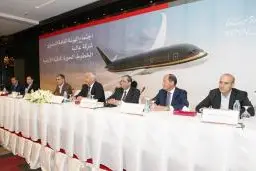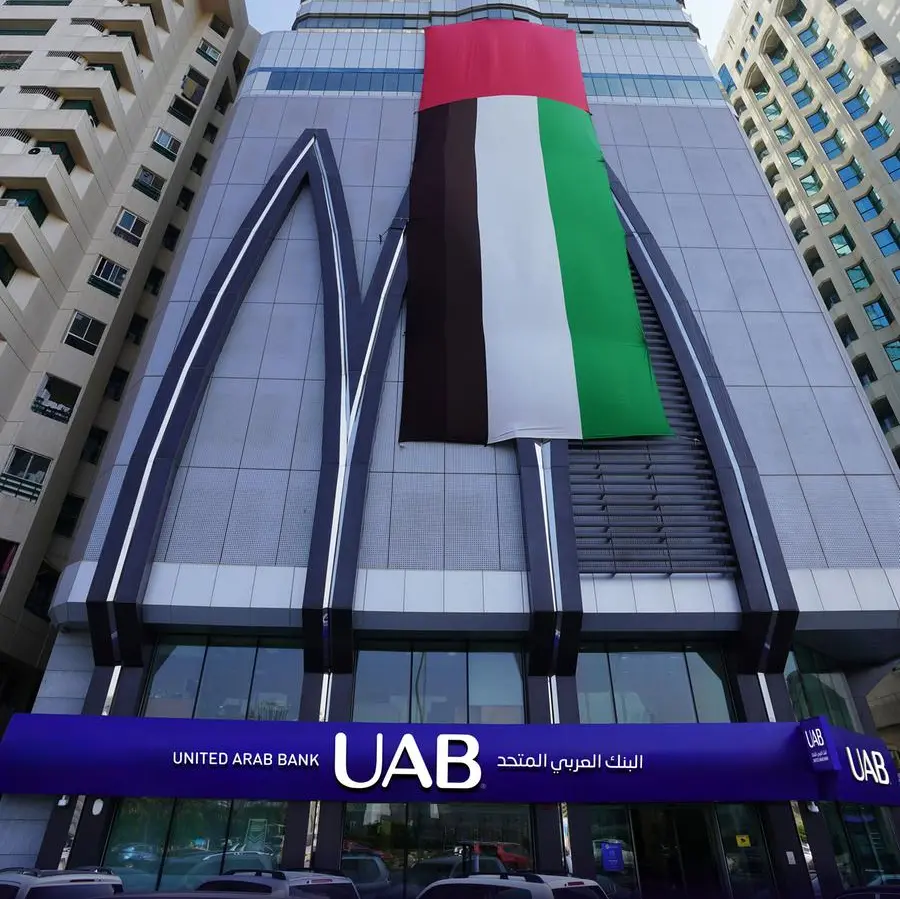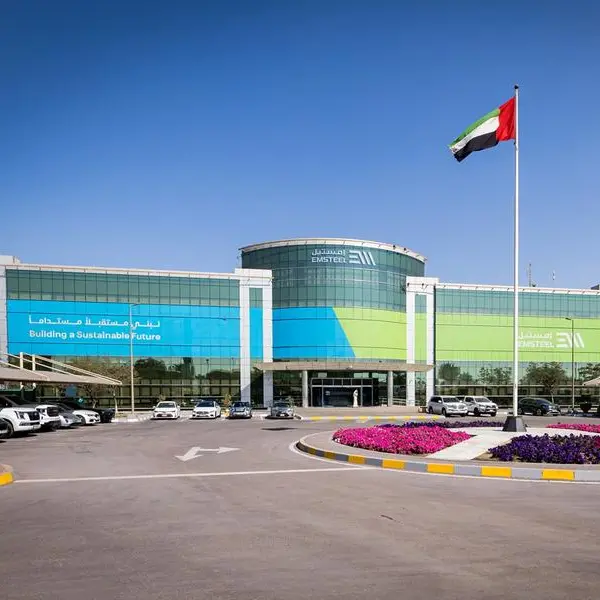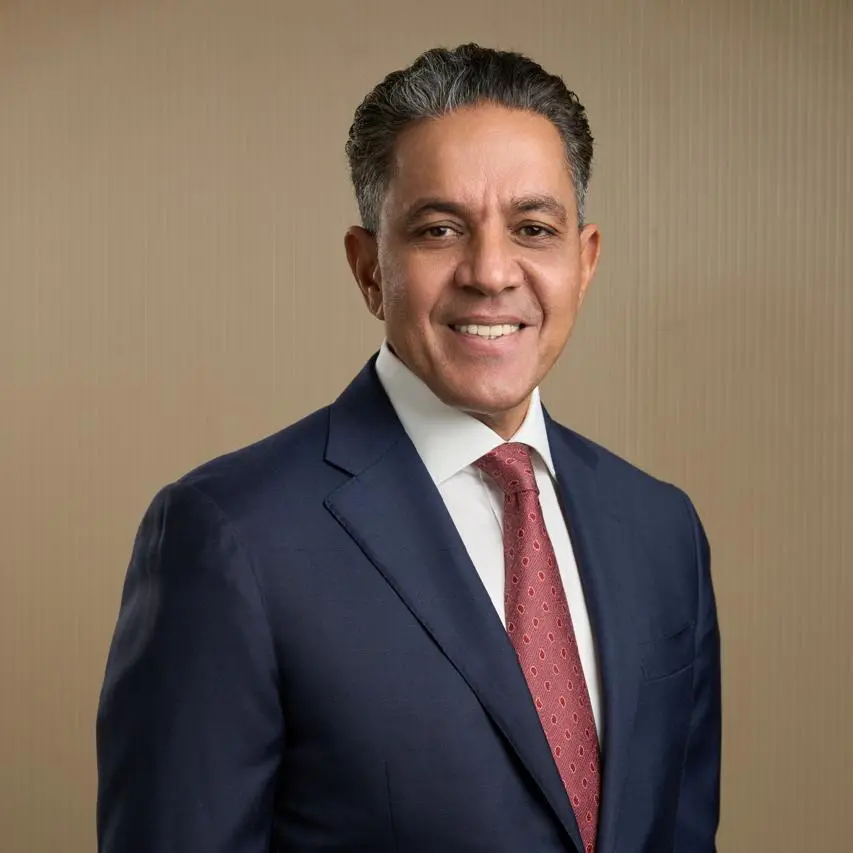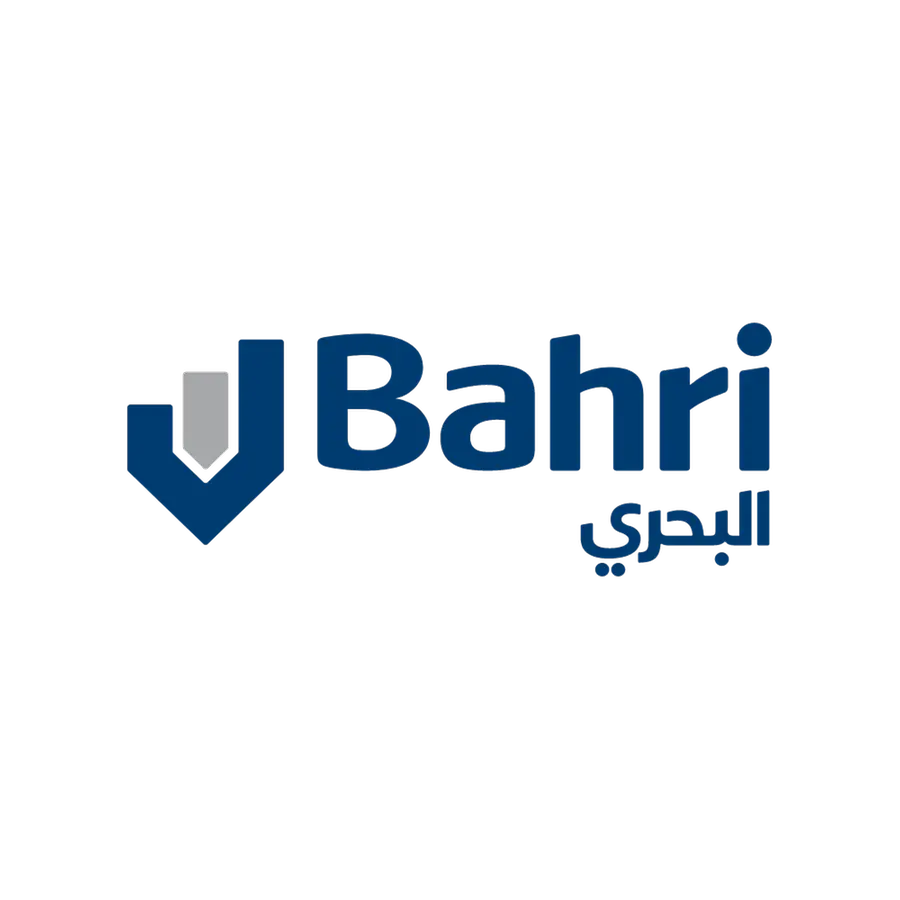PHOTO
JD21 million net profits logged in 2015; operational expenses decrease by 22%
Hafez stresses that last year's positive results are a consequence to the transformations undergone by the company
Continuing execution of the pillars of the 5-year business plan to increase revenues and reduce costs
Amman, April 14, 2016
The Royal Jordanian general assembly held its ordinary meeting on April 14 at Crowne Plaza Hotel, Amman, presided by Chairman of the RJ Board of Directors Suleiman Al-Hafez.
Attending were members of the board of directors, RJ President/CEO Captain Suleiman Obeidat, the representative of the companies' general comptroller XXX, RJ accounts auditors Ernst and Young and some shareholders; the latter, in their entirety, own 88% of the company capital, which amounts to 146.4 million dinars/ shares.
The ordinary meeting discussed the board's report on the 2015 financial situation and the business plan for 2016, in addition to the auditors' report, the budget, profits and losses. The ordinary general assembly agreed to all the articles under discussion.
At the meeting, a new board of directors was elected. It includes: The Government Contributions Managing Company holding 5 seats, the Social Security Corporation holding one seat, Mint Trading Middle East Limited holding one seat, in addition to Michael Nazzal and Mohammad Ali Bdeir.
In his speech, which was distributed to the shareholders, Hafez said that 2015 marked the beginning of the process of real transformation undergone by Royal Jordanian in terms of financial results and recording profits, which we all look for, as shareholders, management, employees and the government, and the citizens as well.
He added that since the beginning of 2015 the company started to implement the 2015-2019 business plan, which came after a detailed analytical study of income, expenditure, route network, fleet, cost and nature of financial restructuring.
The study, he said, concluded that two important factors are the cornerstone to the advancement of the company, namely maximizing revenues and reducing expenses in a manner that would not affect the safety standard, which is a top priority for the company, and the level of services offered RJ passengers.
The business plan, he added, is based on six main pillars. The first focuses on the route network and fleet. The company took the decision to close eight destinations due to their poor feasibility and suspended operations to eight other cities for security reasons. In exchange, it opened five new destinations: Tabuk, Najaf, Ankara, Jakarta and Guangzhou. At the same time, RJ phased out a number of aircraft and introduced five new Boeing 787s.
The second pillar of the plan involves boosting the market share locally and internationally and growing by increasing the number of passengers from and to Jordan and by increasing the transit traffic via QAIA.
Revenue management is the third pillar of the plan. The company has taken a number of measures to boost revenues, with a focus on ancillary revenues, which are part of the fourth pillar.
The fifth pillar is the efficient use of fuel in order to lower cost. The company is implementing a number of initiatives that reduce fuel consumption, including continuously renewing its fleet and negotiating with fuel suppliers to obtain best prices.
The sixth pillar involves an analysis of the aircraft ownership structure. The company will study the best ways to meet its needs and achieve its interests in regards to the options of the operational and/or capital lease.
Regarding the procedures undertaken by the company to raise its capital, Hafez said that the company worked on the implementation of the decision taken at the previous general meeting, including restructuring the company's capital by reducing it to become 46,405,342 shares/dinars and increasing the authorized capital by JD200 million, making its total authorized share capital 246, 405,342 million shares/dinars. The board of directors decided to proceed with increasing the subscribed capital through two phases.
The first phase involved the first part of the increase in the amount of 100 million dinars/shares, while the second part of the increase (also in the amount 100 million dinars/shares) to be carried out through a second phase based upon the company's results and performance. The shares of the first part of capital increase were offered to the main shareholders and the implementation of these procedures was complete. The offering represented 100 million shares at a cost of 1 Jordanian dinar per share. RJ's management looks forward to commencing the second phase of the capital increase in the future.
Hafez said that Royal Jordanian's management will tirelessly pursue the advancement of the company and repositioning it on the right track in order to make this important pillar of the national economy profitable.
RJ contributes about 3% of the country's GDP, exceeding the contribution of other key sectors.
The business plan, said Hafez, also included a quite successful rescheduling of the company's debts; RJ closed $275 million loan facility deal at the end of 2015.
The facility carries a tenor of five years and its proceeds will be primarily utilized to pay RJ's existing bank debts and further support the company's ongoing strategic growth and turnaround plans in the short and medium run, particularly those regarding the modernization of the fleet.
RJ will continue modernizing its fleet by introducing three new Boeings 787, one at the end of 2016, a second at the beginning 2017 and a third in 2018. RJ introduced five 787s in 2014.
Hafez pointed out that the drop in fuel prices was not the main reason for the profit made by the company last year, despite their importance on airline budgets. He said that RJ reduced ticket prices due to fierce competition, but the lower fuel prices helped offset some of the losses incurred because of the drop in ticket prices.
In 2015, RJ halted two significant routes to Sana'a and Aden, incurring losses of JD12.3 million, which was offset by lower oil prices as well.
While the lower fuel prices offset mostly the mentioned two factors, the profits achieved were the result of the staff's keenness to carry out the company's business plan.
Hafez stressed that Royal Jordanian will keep working to achieve its ambitious plan for the coming years, confident in its goals and vision.
The company is now on the right track. It is able to control the variables that affect the airline industry, in terms of fleet and network, despite the challenges it faces due to the political instability in Syria, Iraq, Libya and Yemen, where it has suspended its operations, incurring losses.
Hafez said that RJ is proud of His Majesty King Abdullah's wise leadership, and praised the government's support and keenness to reposition this national company in a place befitting its position as the national carrier.
Hafez also thanked the shareholders for their support and understanding of the situation the company has been going through during the past years.
He expressed appreciation to RJ's staff and to its loyal passengers, expressing hope that RJ will always be a national icon that supports the economy of Jordan.
During the meeting, Chairman Suleiman Hafez and President/CEO Captain Suleiman Obeidat responded to the shareholders' questions about the airline's performance and plans.
-Ends-
© Press Release 2016
